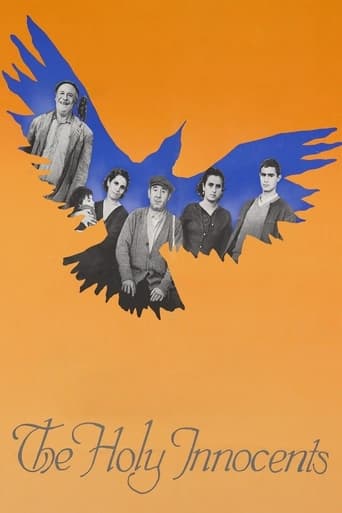Andres-Camara
I watch this movie for the second time in my life. I saw her when I was a child and I see her now as an elderly person, when I am poor, without work, I have nothing and yet I feel offended by the way in which the different social strata are shown.That there will always be social strata is a sad truth, but to be drawn like this seems an insult to intelligence. To say that all the rich are pigs, inhuman, badly born, etc. I think of a cynicism of the nineteenth century, as well as saying that all the poor are like puts them in the film seems another ridiculous.As a movie I think a great movie but the falsehoods and insults to the intelligence I do not like. Like at any moment in life there are good and bad people but they could already have put some good rich and some poor with bad milk. This putting stereotypes seems to me as bad as instilling bad education to people.Spoiler: When I saw this movie for the first time, my father, who had lived with people working in his home all his life, felt very insulted. The moment Landa kneels and smells the ground, even me who was small was strange to me, my father offended. I know rich people today and I can say they are the most educated and respectful people I know.The film all have to say it seems very good, as a film, but also must be said that Spanish cinema, sadly has always been used to make politics, pamphlet, to one side, never mess with the other side, as if they do In U.S.A. But of course they do not depend on the subsidy
lgarcia-4
This film will shake you to the bottom. It is truly unusual to come across a movie where deep sociological, psychological and historical issues are dealt with so soberly. This movie shows quietly all the horror and brutality of rural (feudal) life in southern Spain during the hard years of the Franco dictatorship. This film, and the novel it is based on (by M. Delibes) pays humble homage to the history of millions who were silently oppressed by the class of rural landowners that supported Franco. Now, what performances by Juan Diego, Alfredo Landa and Paco Rabal. I really recommend it to anyone interested in realist art.
Keith F. Hatcher
The last twenty five years of Spanish filmography have produced a number of titles which have indulged in sociological themes, mostly using the years of the Franco Régime as a background when not a mere scapegoat. El Sur (Victor Erice)(qv), Las Ratas (Giménez Rico)(qv), Las Bicicletas son para el Verano (Jaime Chávarri) as well as several by the now deceased Pilar Miró, come to mind. But perhaps none reach the powerful endorsement achieved in Los Santos Inocentes, carefully and predictably directed by Mario Camus. Faithfully transferred from the book by Miguel Delibes, also author of Las Ratas, as well as singularly impressive narratives such as Cinco Horas con Mario, a true tour de force in contemporary literature, and the intensely lyrical and moving El Camino, Camus inspired the principal actors - Paco Rabal, Alfredo Landa and Terele Pávez - into producing some memorable scenes.Scenes of illiterate peasants obeying their master, landowner, insensible to everything except his passion for hunting; peasants who were so hugely grateful for the handful of pennies so compassionately handed out by the rich duchess; peasants who grovelled in the filth of their mean shack and could barely write their own names. Spain: about 1962 if the registration number of the big black Mercedes is anything to go by. Spain, in the region called Extremadura, which even today is the poorest part of the country. Spain, governed by a dictator who himself was extremely uncultured. Camus, armed with the simple but sincere exposition in Delibes' novel, manages to show this plight, but without the tremendism so frequent in Spanish books or films; without any soured feelings, but dispassionately, like a surgeon operating for the five hundredth time on gall-stones. The story was there to be told and not sympathized over. Not for the pop-corn eating public, more for the discerning cinema-goer who can give what the film demands: attention to details. The incision is precise, exact, giving greater credibility to this little masterpiece.
Miguel Angel Diaz Gonzalez
This is one of the best Spanish movies I have seen. For many reasons. First, the story, which is based on a great novel by the brilliant writer Miguel Delibes, can be seen from different points of view: as the characters in themselves, or as the history of the spanish society through two generations. Second, the actors do an incredible performance (Paco Rabal and Alfredo Landa are really fantastic, not to mention Juan Diego, Mary Carrillo, Terele Pávez...). Third, the scenes' directing and editing rise to the occasion. The result is a fresh, intelligent and charming film that we won't forget for a long time. Perhaps Belén Ballesteros and Juan Sachez's performances aren't worthy of the occasion, but that's the least of my worries.




